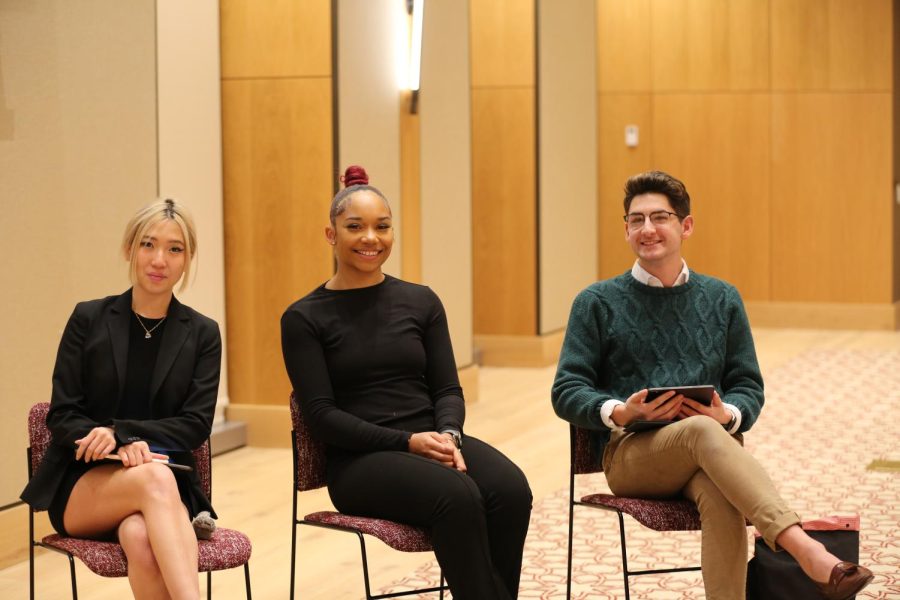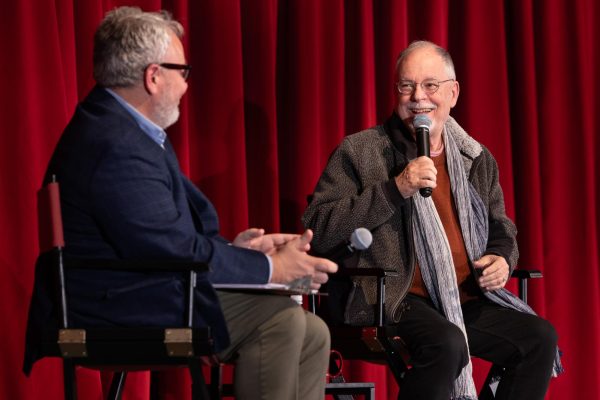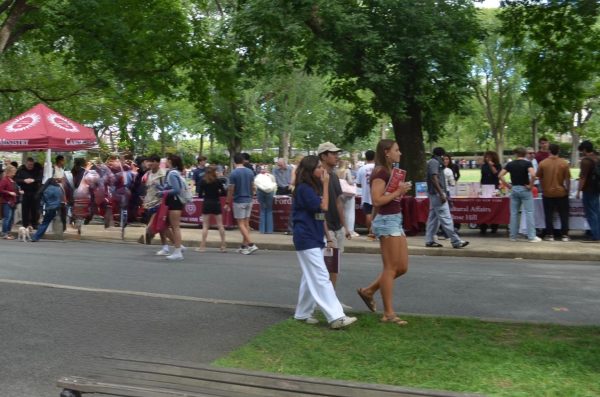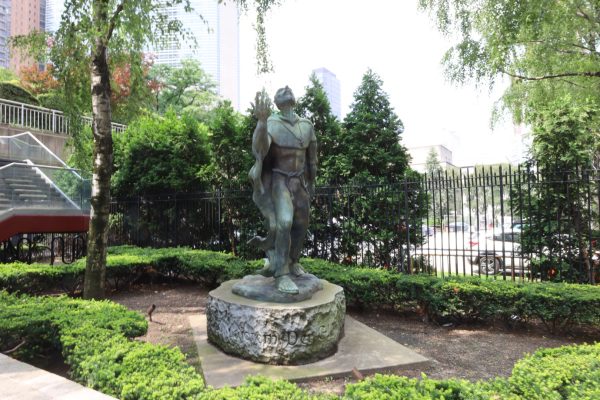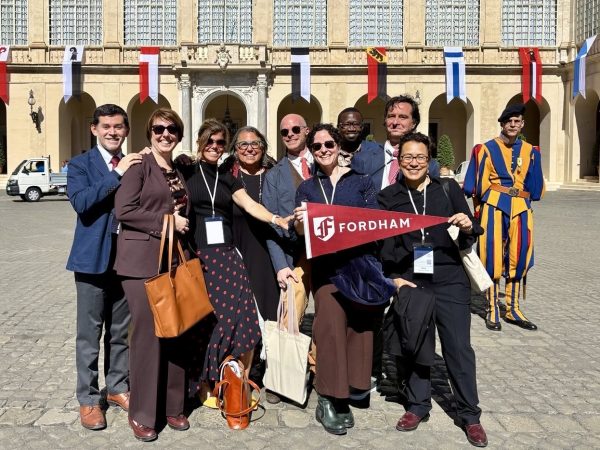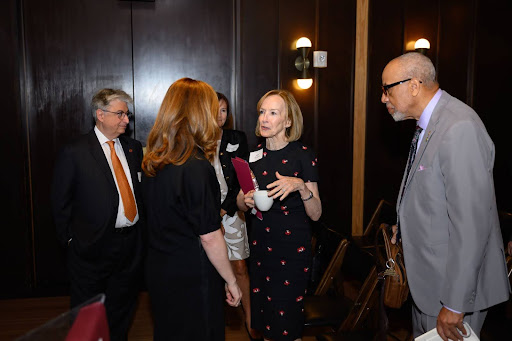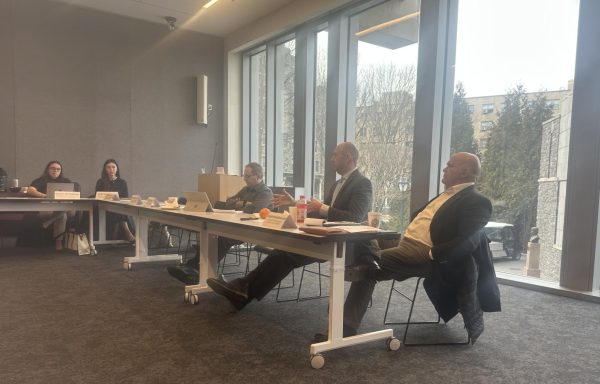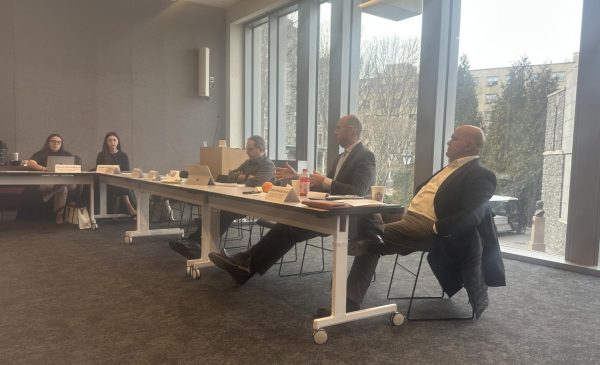USG’s Diversity Action Coalition Hosts Student Activism Panel
On Nov. 28, United Student Government’s (USG) Diversity Action Coalition (DAC) hosted its third annual student activism panel. The panel featured student activists, all of whom participated in various social movements while in college and high school. The participants included: Andy Diaz, FCRH ’25, Kellen Zeng, GSB ’25, Liz Shim, FCRH ’23, Jillian Douglas, FCRH ’25 and Nicola D’Abundo, FCRH ’26.
The panel was moderated by Briana Al-Omoush, FCRH ’24, vice president of diversity and inclusion and chair of the Diversity Action Coalition. Al-Omoush started the panel discussion by asking the participants what activism means to them. D’Abundo began by saying that advocacy meant using your voice to stand up to others. He said that without passion, activism is hard to maintain.
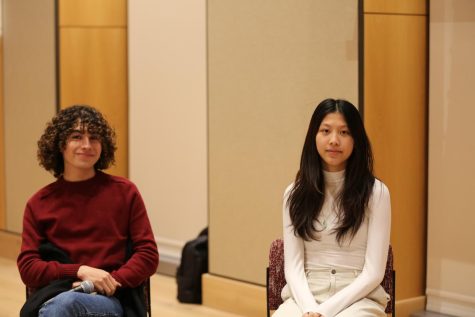
Douglas said that activism is about supporting marginalized people. Douglas started getting involved in activism after her sports shut down due to the pandemic. Shim said that activism was about supporting vulnerable people. Shim serves as USG’s vice president of sustainability, and she said that sustainability is highly connected to activism, as many marginalized communities are the most at risk of the effects of climate change. Zeng said that it’s important to shine a light on issues that matter.
Al-Omoush then moved the conversation to how each participant got involved in activism, and all the participants shared their experiences. Zeng said that she got involved through volunteering with nonprofits. Diaz said that the best way to get involved is to find groups to work with, and he stressed the importance of collaboration in activism.
“Activism can’t function without collaboration,” said Diaz.
Shim said that students should attend protests and get involved in movements in their areas. She told a story about how she bumped into a protest in Flushing during the Anti-Asian Hate movement while walking home. She said that even though she wasn’t planning on participating, she did because the cause was important to her.
The conversation then turned to what it means to be a good ally. Douglas started the conversation by telling a story about how she transferred schools in high school. At her new school, she said she noticed how English as a second language (ESL) students were othered within the school community. She shared how she created programs to help students adapt to the school. In that instance, allyship to her meant helping people who have barriers in their way. Shim said allyship takes on a “we’re all in this together mentality.” Zeng said that allyship means being aware.
She spoke about the importance of being intentional about activism and understanding how to use your privileges and voice to help productively advance the agenda of others. She said oftentimes allies need to remember that they have to listen to the group they are helping and not dominate the conversation. Diaz agreed with Zeng and emphasized that allies should not lead conversations but rather try and amplify them.
Al-Omoush then pivoted the conversation to address social media and how it changed activism.
Diaz said that social media activism should be used intentionally. He said that there’s a difference between “sharing a pretty graphic” than sharing “links to mutual aid resources.” Douglas said that it is easy to share resources on social media, and she said that people should be educated on the issues they are posting about.
“Don’t post anything if you don’t understand the context,” said Douglas.
D’Abundo pointed out that many times social media posts only go out to someone’s followers, meaning that the length that the message can spread is limited.
The panelists then discussed what Fordham could do to improve their activism on campus.
Shim encouraged the university to expand its course offerings. She mentioned the ongoing efforts to get the university to offer an Asian American Studies minor. Douglas said Fordham should increase its engagement with the Bronx community and work on educating students on the history of the Bronx. D’Abundo said Fordham students need to be aware of their presence in the Bronx. He encouraged the university to start diversity training for all students. Zeng mentioned that she thought Fordham did a good job in the number of cultural clubs and their activity on campus, but also said that she thought there was too much red tape on campus and that it was extremely difficult to enact change on a university level, which she said she believes is a big issue at Fordham.
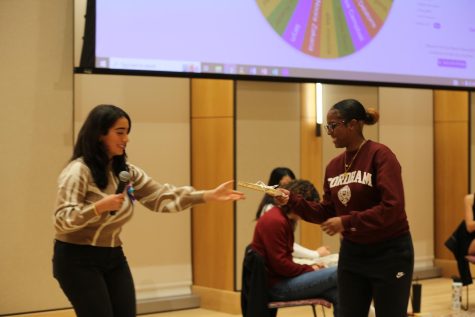
The panel then opened for audience questions. An audience member asked the panelists how activism varies between visible identities, like race and invisible identities, like sexuality or gender identity. Zeng responded by emphasizing the need to verbalize hidden identities and bring them to the forefront of the conversation.
The event ended by raffling off the books “How to be an Anti-Racist” and “At the Dark End of the Street.”
Al-Omoush said hosting a panel like this is important because it fits into DAC’s goals.
“One of DAC’s priorities is to uplift student voices, and that’s exactly what we’re doing [at the panel]. We’re amplifying the student voice,” said Al-Omoush.
Al-Omoush said that she hoped that the attendants of the panel learned that activism takes many forms. She said that she liked learning more about her fellow students and the work they have done.
“Three of the members of the panel were [on] USG,” said Al-Omoush. “I didn’t understand the breadth of their other extracurriculars and their roles outside of USG, so it was really nice to hear that.”
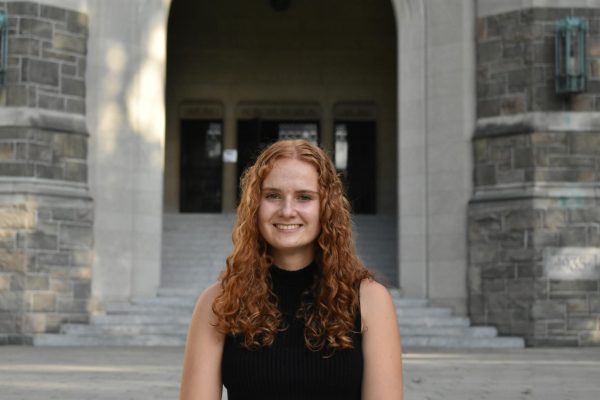
Isabel Danzis is a senior from Bethesda, Md. She is double majoring in journalism and digital technologies and emerging media. The Ram has been a very...



































































































































































































